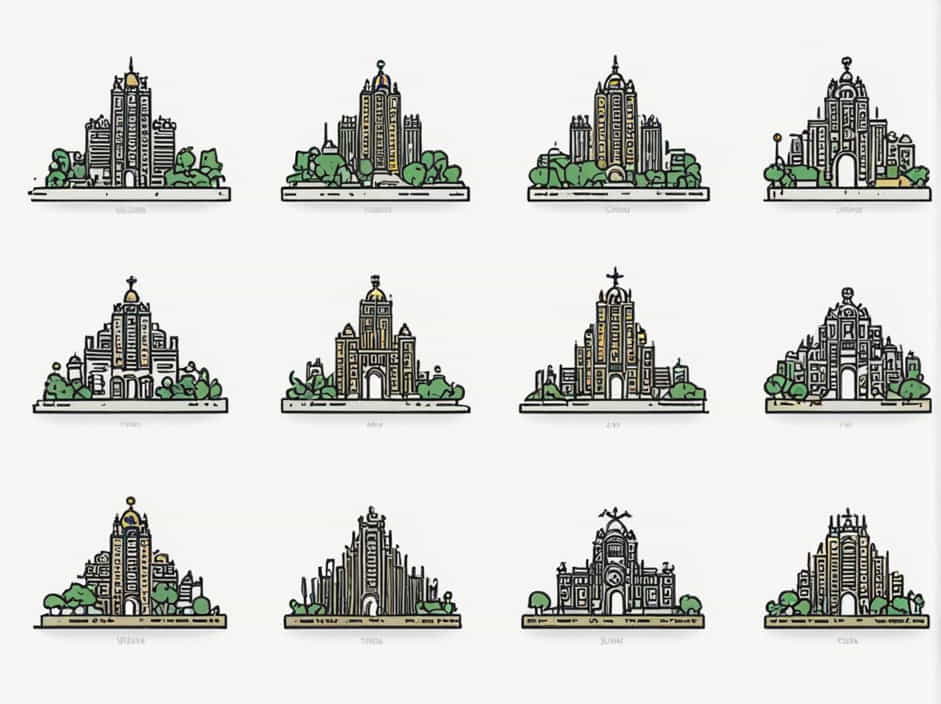Mexico City is one of the most vibrant and populous cities in the world, known for its rich history, cultural heritage, and breathtaking landscapes. One of its most defining geographical features is its high elevation, which plays a significant role in its climate, air quality, and daily life.
Elevation of Mexico City
The official elevation of Mexico City is 2,240 meters (7,350 feet) above sea level. This makes it one of the highest capital cities in the world. Its altitude influences everything from weather conditions to how visitors and residents adjust to daily life.
How Does Mexico City’s Elevation Compare to Other Cities?
Mexico City sits at a much higher altitude compared to many major cities worldwide. Here’s how it compares:
- New York City, USA – 10 meters (33 feet)
- Los Angeles, USA – 93 meters (305 feet)
- Paris, France – 35 meters (115 feet)
- London, UK – 11 meters (36 feet)
- Tokyo, Japan – 40 meters (131 feet)
In contrast, Mexico City is lower than some other high-altitude capitals, such as:
- La Paz, Bolivia – 3,640 meters (11,942 feet)
- Quito, Ecuador – 2,850 meters (9,350 feet)
Despite not being the highest, Mexico City’s elevation is significant enough to impact various aspects of life.
Effects of Elevation on Climate
Temperature and Weather
Mexico City has a mild climate year-round due to its high altitude. Some key features include:
- Cooler temperatures compared to other places at the same latitude
- Warm days and cool nights, even in summer
- Lower humidity, making the air feel drier
- Distinct dry and rainy seasons
The city experiences an average temperature of 12°C to 18°C (54°F to 64°F) throughout the year. While it does not get extremely hot, the sun can feel intense due to the thinner atmosphere.
Air Quality and Pollution
Mexico City’s altitude affects air quality because the thinner air makes it harder for pollutants to disperse. The city has faced air pollution challenges, but efforts such as vehicle restrictions and green spaces have helped improve conditions.
Effects of High Altitude on Health
Altitude Sickness
Visitors who are not used to high elevations may experience altitude sickness, which can cause:
- Headaches
- Dizziness
- Shortness of breath
- Nausea
Most people adjust within a few days, but it’s important to stay hydrated, avoid alcohol, and take it easy when arriving.
Impact on Physical Activity
Due to lower oxygen levels, physical activity can feel more challenging. Athletes training in Mexico City may take longer to adjust but can later benefit from improved endurance when competing at lower altitudes.
Effects on Daily Life
Cooking and Boiling Water
At high elevations, water boils at a lower temperature (about 92°C or 198°F instead of 100°C or 212°F at sea level). This means:
- Longer cooking times for food, especially beans and pasta
- Special baking adjustments due to lower air pressure
- Boiling water for purification may take slightly longer
Effects on Vehicles
The lower oxygen levels also impact cars and other vehicles. Common effects include:
- Reduced engine performance, especially in older models
- Lower fuel efficiency
- Tire pressure changes due to altitude differences
How Does Mexico City’s Elevation Affect Tourism?
Adjusting to the Altitude
Visitors should be prepared to take things slow in their first few days in Mexico City. It’s important to:
- Drink plenty of water to stay hydrated
- Avoid excessive alcohol and caffeine, which can worsen dehydration
- Eat light meals to help with digestion at high altitude
- Rest if feeling unwell, as altitude sickness usually passes in a couple of days
Exploring the Surroundings
Mexico City’s elevation also means it is close to even higher destinations, such as:
- Nevado de Toluca (4,680 meters or 15,354 feet) – A stunning extinct volcano with hiking trails.
- Pico de Orizaba (5,636 meters or 18,491 feet) – Mexico’s highest peak and a favorite for climbers.
- Ajusco (3,930 meters or 12,894 feet) – A popular day-trip hiking destination just outside the city.
With an elevation of 2,240 meters (7,350 feet) above sea level, Mexico City’s high altitude significantly affects its climate, air quality, health, and daily life. Whether you are visiting or planning to stay, understanding its elevation can help you prepare for the unique challenges and benefits of living in one of the world’s most exciting cities.
